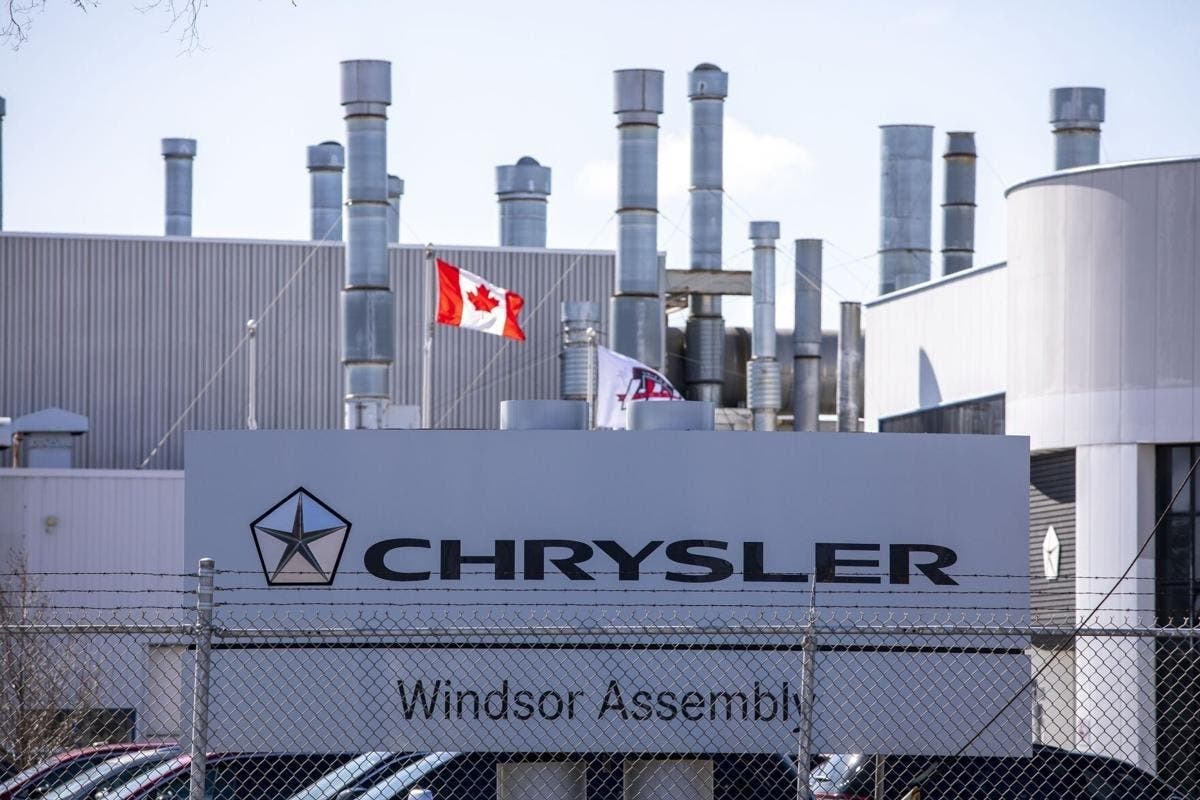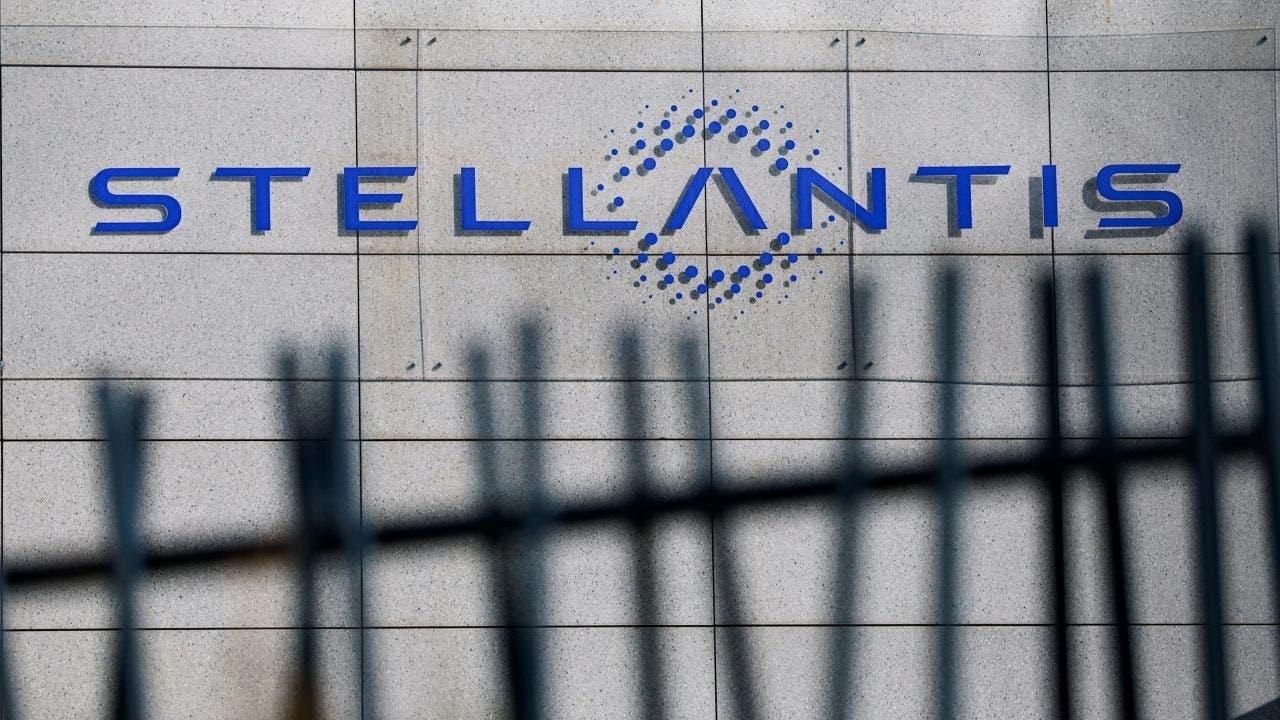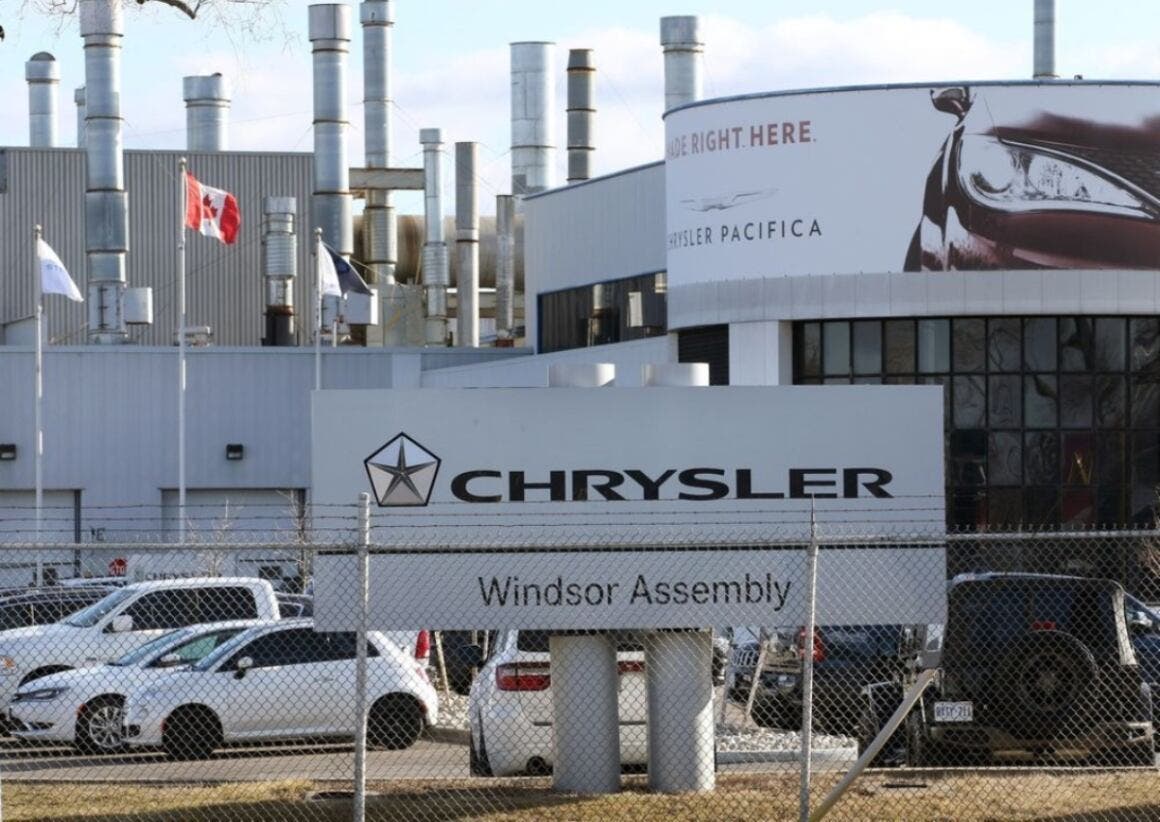There is a very immediate effect following the tariffs imposed by United States President Donald J. Trump. An effect that already involves Stellantis. The automotive Group born from the merger between FCA and PSA has temporarily suspended operations at the Windsor plant in Canada. This is a temporary shutdown for two weeks starting from April 7th.
Stellantis Windsor plant, which employs about 3,600 workers, will stop for two weeks

This is news that was already in the air and has been confirmed by the local union Unifor Local 444. This is the first repercussion in relation to the new tariffs on automakers proposed by Donald J. Trump. According to James Stewart, president of the same Unifor Local 444, the decision was made due to “multiple factors.”
However, he emphasized that the decision affecting the Stellantis Windsor plant is related to yesterday’s announcement in which the United States President announced 25% tariffs for all vehicles produced outside the United States.
It should be noted that the temporary two-week shutdown starting from April 7th will affect approximately 3,600 Stellantis workers employed at the Canadian site in Windsor. The Canadian plant produces some Chrysler minivans and especially the Dodge Charger. In this way, the temporary shutdown affects not only the workers but the entire supply chain of the site.

In addition to other tariffs imposed by Trump, all vehicles produced outside the United States and then imported into the USA will be subject to a 25% tax; except for those containing elements produced in the United States based on a threshold established by the US regulator. However, the models produced by Stellantis in Windsor, despite being made with an average of US components in the order of 50%, might not be excluded from the new tariffs. It should be noted that Stellantis, also having a plant in Mexico, could move in the same way there, also by virtue of a real cascade effect in the supply chain and automotive production related to the two plants.
Outside of Stellantis, Ontario has many other automotive plants such as those of General Motors, Honda, Ford, and Toyota, which produced over 1.6 million vehicles in 2024; most of these were destined for the United States. This condition could also cause other groups and automakers to take a hard hit.

